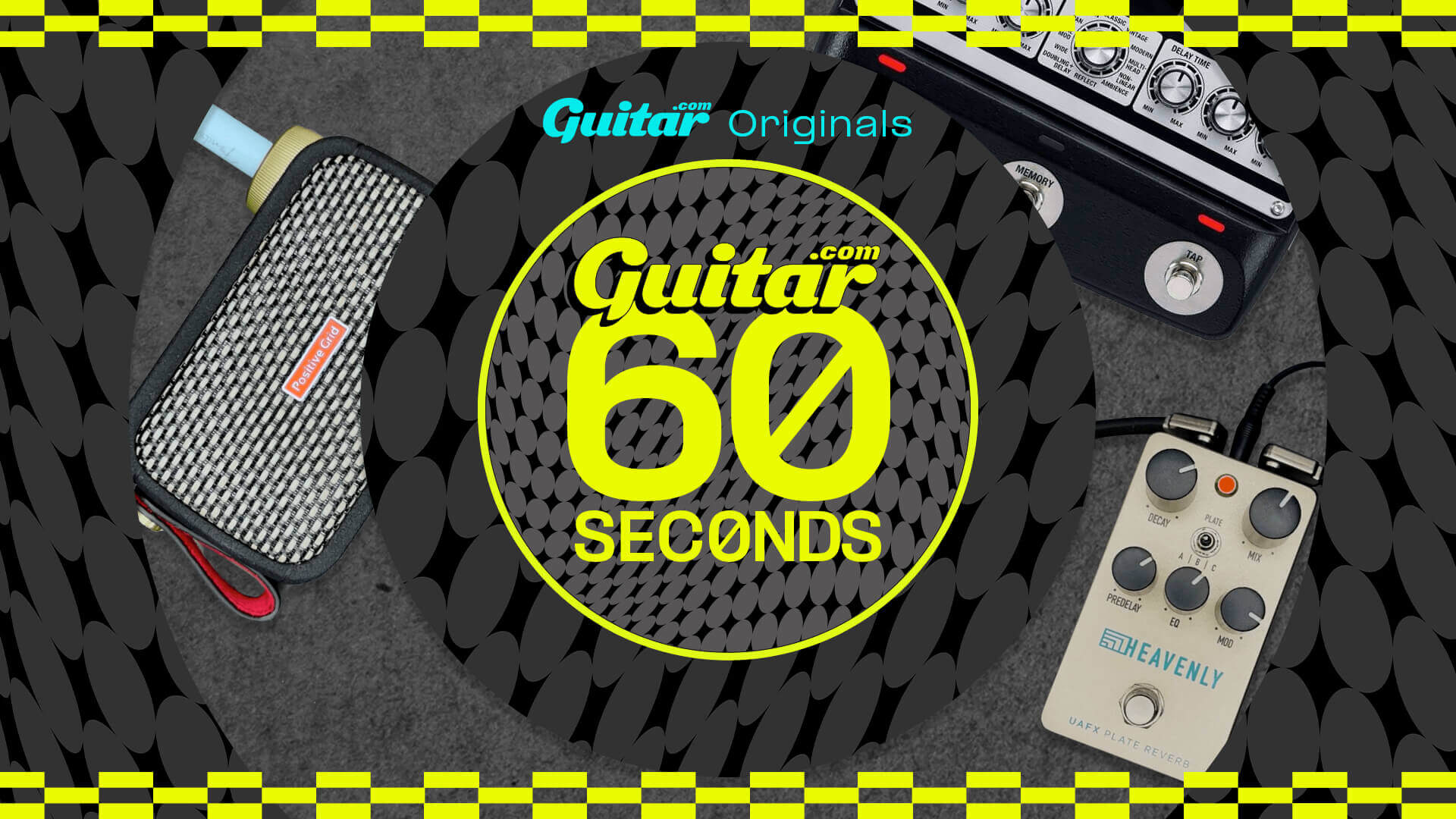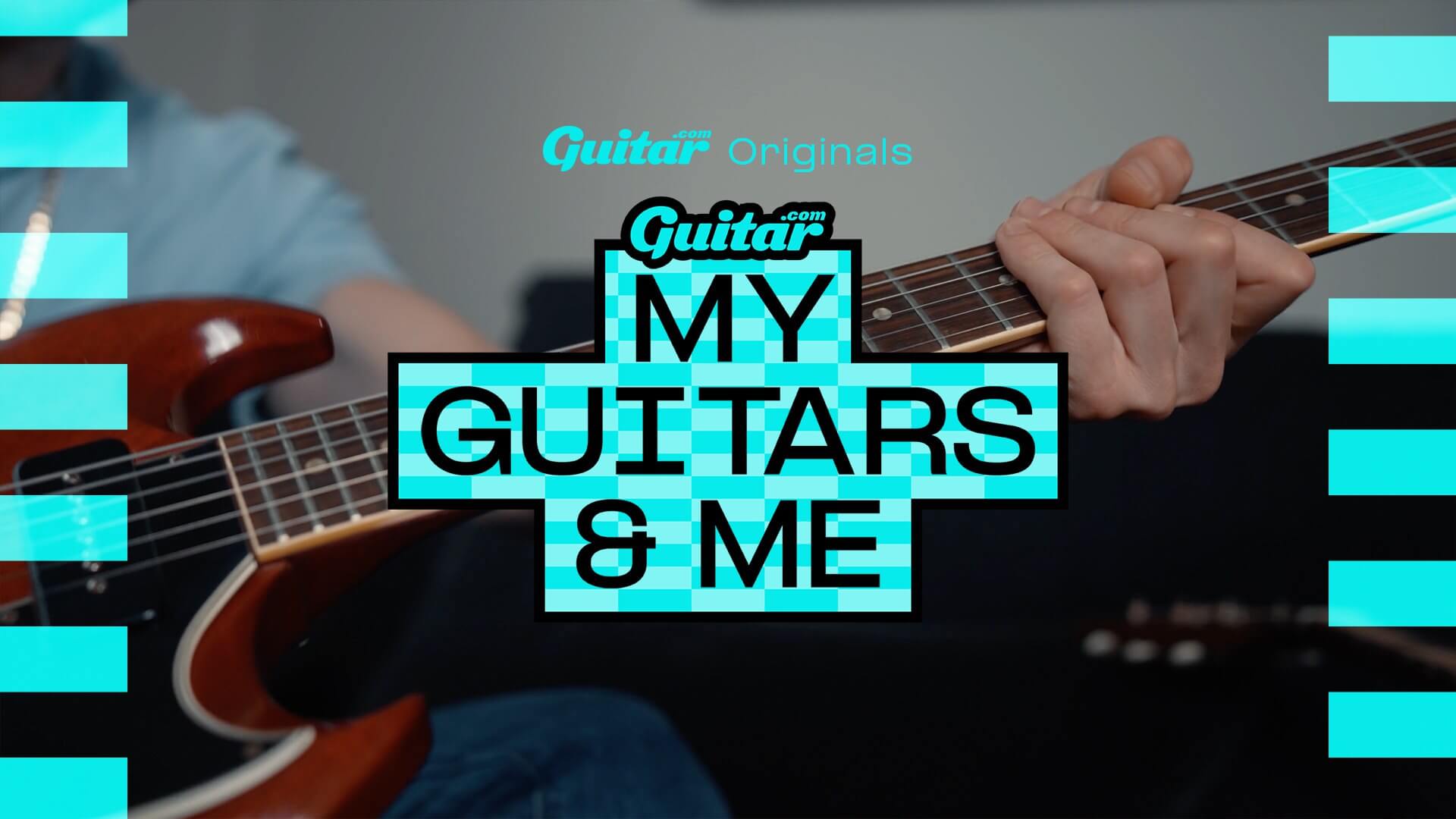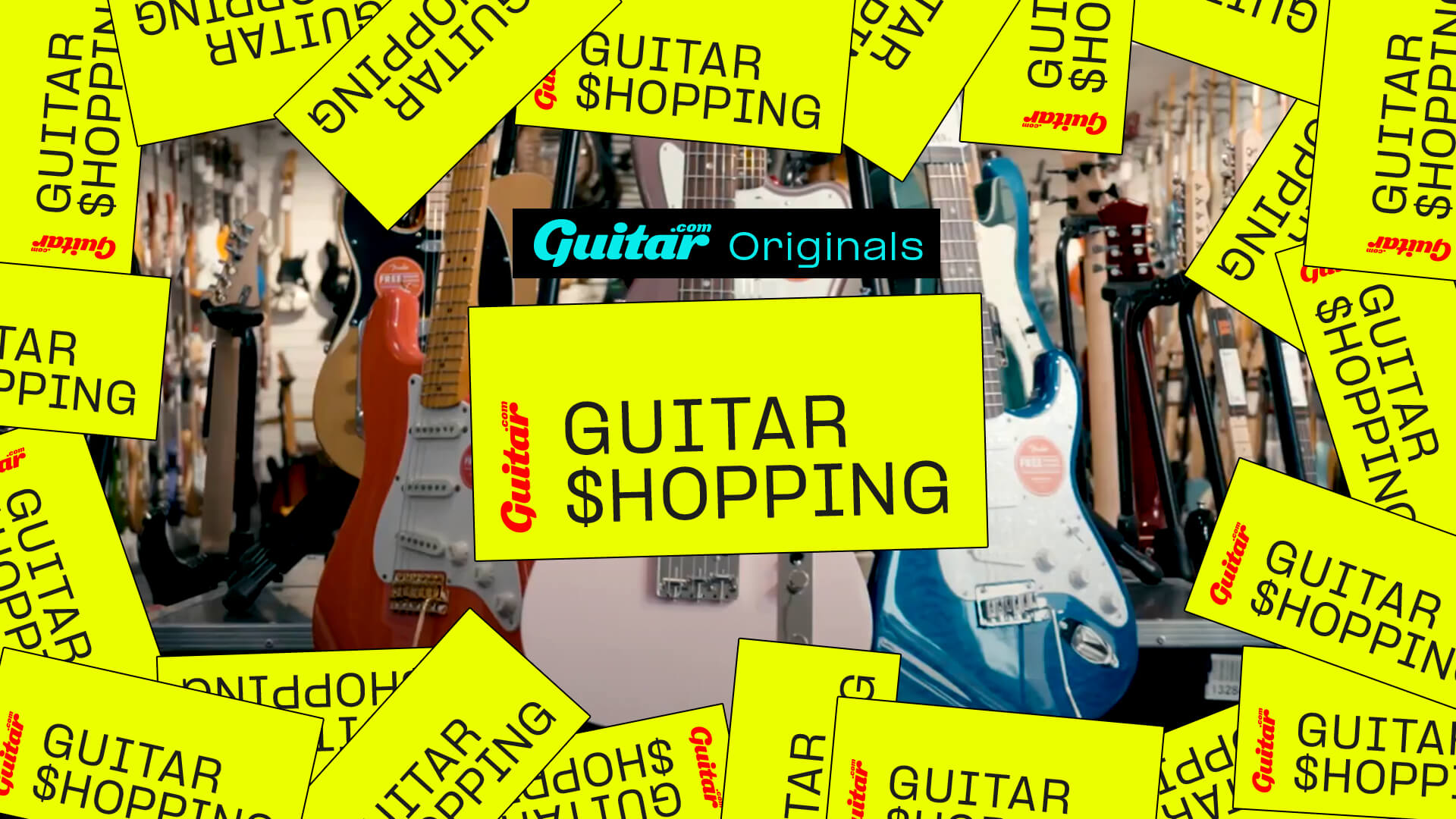“The industry has a lot less power than a lot of people think” Meet Maxwell Varey, indie’s new working class guitar hero
Growing up in a northern English town where being a musician is still classed as ‘weird’, Maxwell Varey has used Tiktok to get his foot in the door of the UK indie mainstream – and he’s not done yet.
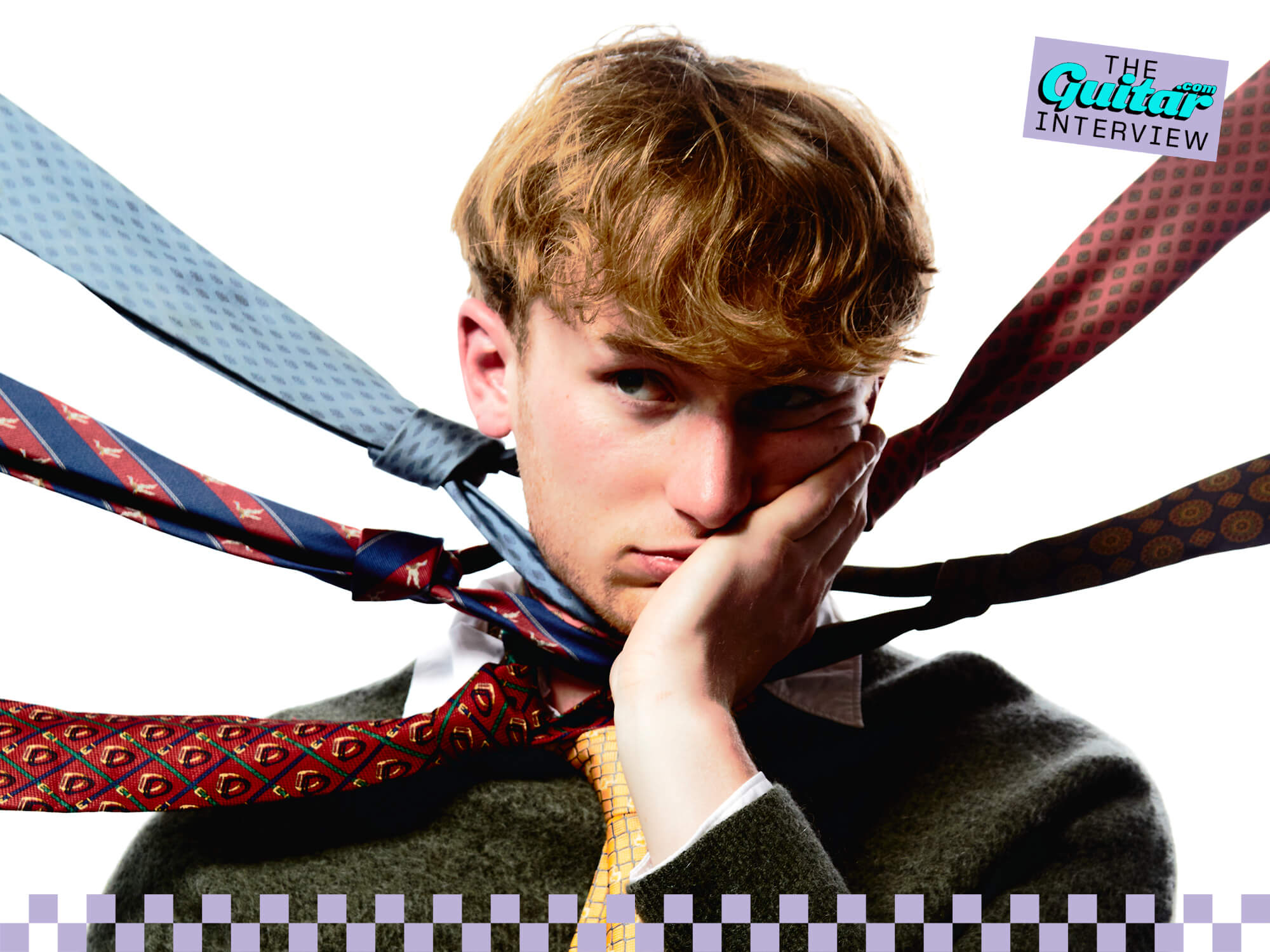
Maxwell Varey. Credit: Press
For Wigan-born-and-bred indie artist Maxwell Varey, everything started from playing guitar. Growing up with festival-loving parents who were big indie and rock fans, music was a part of his life from an early age. “It’s all I’ve ever known, really,” he reflects, now aged 20. Despite them splitting when he was young, they both took him to gigs; his first was Bombay Bicycle Club with his mum and, later, he saw Foo Fighters with his dad.
Aged just six, his mum pushed him to join a music tuition course where each session ended with the group performing the songs they had learned in front of a crowd of parents. “I loved that it wasn’t traditional lessons where you sit down and learn loads of boring stuff,” he says. “It was very practical and fun straight away.”
What really ignited Maxwell’s passion, though, was getting a mini Squire strat guitar and amp for Christmas when he was five-years-old. “I remember plugging it in and fucking about with it in the conservatory,” Varey recalls, having not had any lessons at the time. Despite not knowing how to play it, he thought it was “really cool” and dedicated the majority of his time to the instrument.
He describes learning at such a young age as “a blessing”, adding “I don’t think I could just learn guitar now from scratch. It’d be so much harder, just having that attention span and becoming obsessed with it.” But now it’s second nature,” he adds. “It’s embedded into me, like muscle memory. I’m very lucky to have got it so early.”
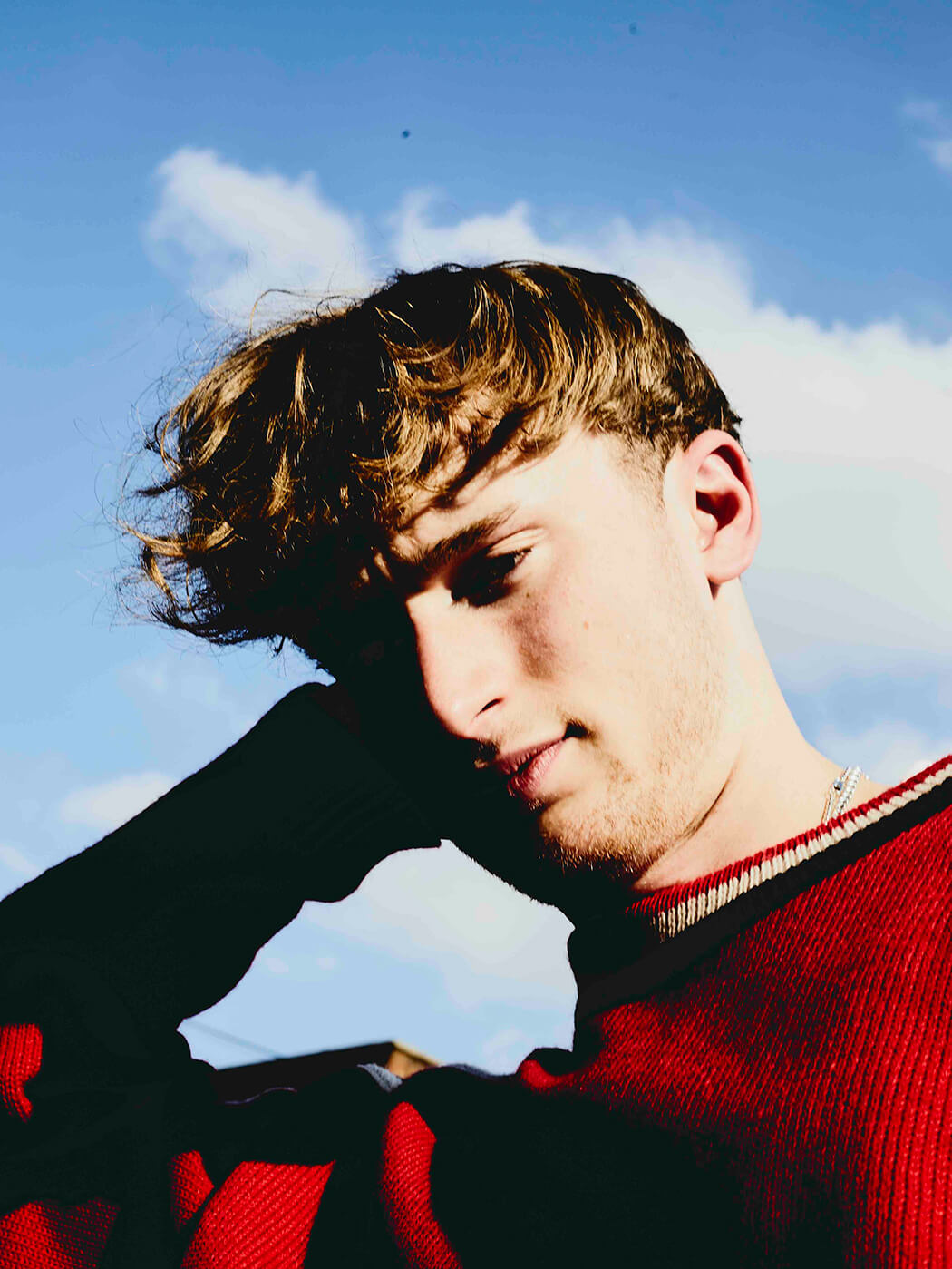
He goes on to describe the guitar as a “versatile instrument” and calls it “inspirational for songwriting. Everything starts for me through playing chords on my guitar and then producing an instrumental. That’s where my musical brain is. I relate everything back to the guitar.”
Falling in love with bands like Nirvana and Red Hot Chilli Peppers led to Maxwell becoming “more and more obsessed with music” by the time he turned 13. Alongside Oasis and Stone Roses phases, he was also into heavier bands like Korn and Queens of the Stone Age. “A bit of everything,” he says, “as most guitar players are”.
Meanwhile, at school, Maxwell’s teachers were at first “confused about why I wanted to do music”. Nonetheless, he started to play guitar in two school bands (rock and soul) and went on to study music at GCSE. “That was great,” he recalls; “my music teacher, Mr Pell, just let me get on with it and always believed in me”. His English teacher, Mrs Everson, was similarly confident in a young Maxwell, who had developed a love for poetry. “Because I wrote lyrics, and her husband was in a band, she was always supportive in that way. It was good to have figures like that.”
His teachers and parents weren’t the only people keen for Maxwell to follow his music dreams, however. His painter-decorator grandad, who Maxwell and his mum lived with for some time, played a big part in shaping the artist he would become. “He loved bands like Thin Lizzy and The Eagles and was always playing guitar whenever he got home from work. To see that his passion had passed down the generations was “great for him”, Maxwell says.

Family Heirlooms
When his grandad started to realise that Maxwell was really into it, he decided to trade cheaper guitars so he could buy him a top-spec one. This meant a lot to Maxwell because, as he puts it, “he’s not got money to just be buying his grandson nice guitars”; to this day, all the electric guitars that Maxwell has now — two Telecasters and a Strat — have been given to him by his granddad; the only ones he bought himself are an acoustic guitar and bass. Incidentally, Maxwell says he would only ever want to buy a guitar if it’s second-hand. “I think they’re much better,” he suggests. “Having a guitar that’s already been lived with is more appealing to me. It’s more inspiring.”
By the time he had turned 14, Maxwell knew that he wanted to pursue music. “The main thing I was thinking, every day, was ‘I need to be in a band’.” This resulted in him going to Saturday jamming and writing sessions with an older singer and drum teacher who were third-year students at Preston university and in their own band.
“I was always quite mature and tall for my age, so I probably looked more like I was 18,” Maxwell laughs, having been asked to join them for rehearsals in an old mill. It wasn’t long until he joined the band as guitarist and co-songwriter. “I’d get picked up when I got home from school and we’d practice every day,” he recalls.
Sharing similar music tastes, the group “wrote a bunch of tunes and “decided we wanted to do it properly”. Calling themselves Neptune Valley, he became the lead guitarist from 2017. “I was always focused on being the best lead guitarist possible,” he recalls, having been particularly inspired by John Frusciante and John Mayer.” Although he was writing and producing on his own too, for Maxwell it was all about playing gigs – and the band played loads of them. “That was a great experience to have so young,” he reflects. “It just made me really want to do it. There was never any doubt.”
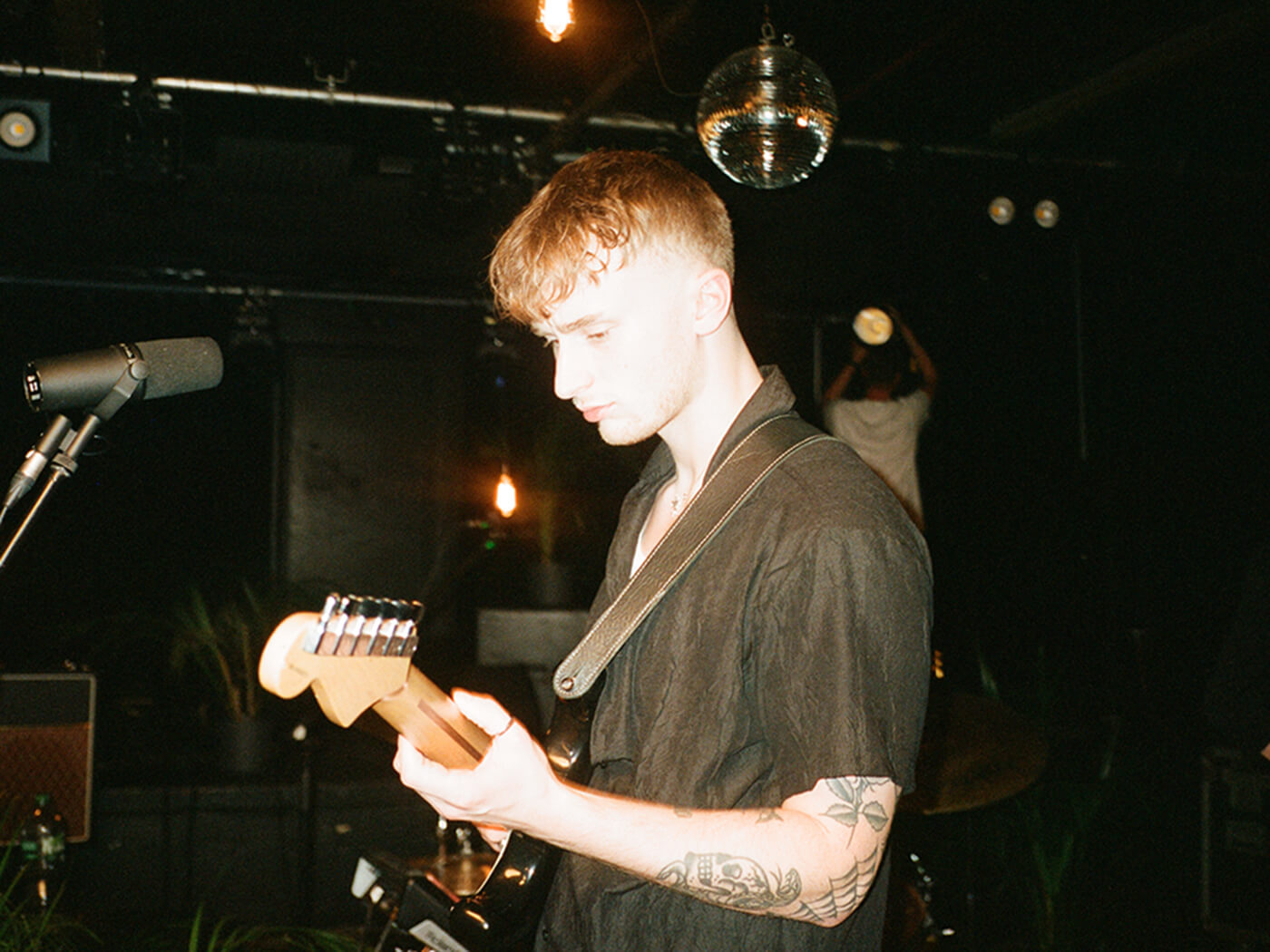
Drifting Home
However, when lockdown hit, the gigs stopped and the lads got into full-time jobs. But Maxwell wanted to go further: “it felt like I was drifting away,” he recalls. Although it was difficult at the time, their separation resulted in Maxwell setting his sights on a solo career.
Post-lockdown, he had penned tonnes of indie bangers and began gigging up and down the north of the country.
“Nothing beats being in a room with live guitar and live bass and a drummer,” he says. “Standing in front of that and feeling that power, it’s really satisfying,” he explains. “I love gigs when there’s a lot of pressure and you know people are really watching,” he says, having recently played an industry showcase. “It makes me play a lot better,” Maxwell adds. “I just like the adrenaline of it, and it’s great to actually get something out of a gig – I love feeding off of a crowd.”
Having played his fair share of hometown shows, he is keen to big up the local scene in Wigan, suggesting that “it beats 99% of small towns like it”. He also highlights that The Verve’s Richard Ashcroft is from the same area, as are indie-rockers The Lathams.
Despite these success stories, Maxwell says “people are still seen as weird here if you’re a musician; it’s not understood. If you say you’re a musician in Wigan, you’re either a teacher or you’re a pub singer. People can’t really fathom that you can go on to be a big music artist; they just don’t think that that’s what happens.” However, he says that championing his local scene is “very important, to show kids and parents that it’s possible”.
Despite only being three singles into his career, his determination paid off quickly, with spins on BBC Radio 1 and Radio X. While Maxwell initially found it hard to break into the industry, he says that “once you get your foot in the door, it’s not as big and overwhelming as you think.” He also believes that “the industry has a lot less power than a lot of people think, which is a really good thing. I think a lot of it’s still in the artist’s favour”.
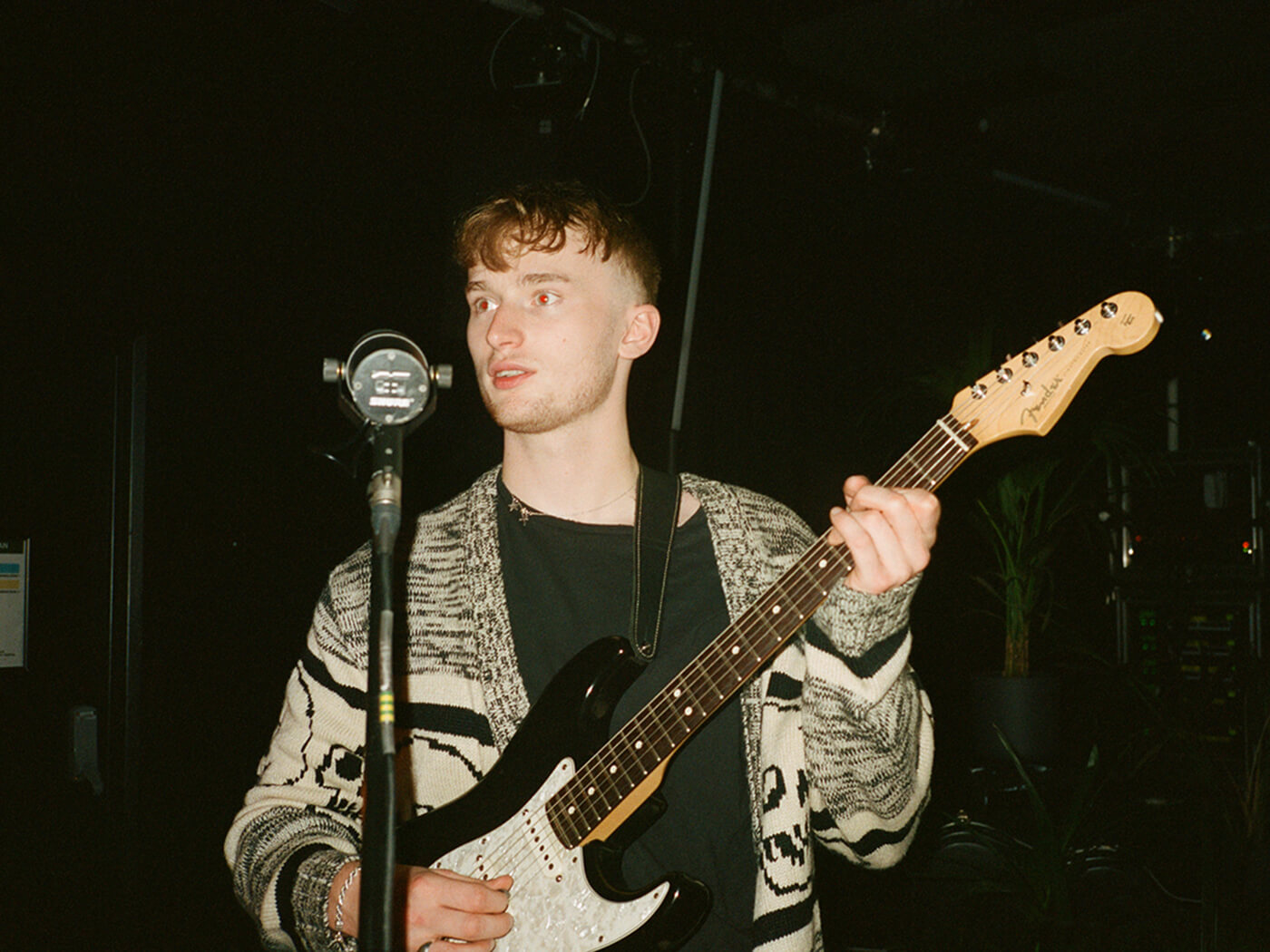
Social Security
One of the ways Maxwell found an audience was through TikTok, a platform that he feels has helped level the playing field: “back in the 90s, you’d have a major label who would find an artist with great songs and they would package everything up and do enough to convince people that they were an artist worth going to see and buying the records. But now anyone from any background can get their foot in the door.”
This week saw the release of Maxwell’s debut EP, ‘Ivory’, a collection of “very personal” songs. “I’ve found the writing process quite cathartic,” he says, “I was trying to express everything that was in my head and what I was wanting to hear.” He did this by combining bold, ambitious production with poignant lyrics and catchy hooks. “I tried to make everything as big and as satisfying as possible,” he says.
Beneath the infectious riffs and drum beats, however, lie much deeper themes, like mental health, drug abuse, gentrification and family issues, although these are often subtly referenced. Maxwell puts this down to how he sees himself as a lyrical commentator. “I love being metaphorical about things, even when the subject is very personal,” Maxwell says, suggesting that this stems from his love of poetry. Taking this bigger-picture approach helps him “feel as though he can get away with being more direct about certain things. It’s about presenting it in a big pop way, because that’s my way of getting across what I want to say,” he adds. “I think that’s how you get people to listen”.
With this first project, he wanted to make a “punchy and concise piece of work”. He’s not shying away from the pop part of the indie-pop tag, either. “A lot of people say they want to be alternative, but I think saying that can be limiting, because making a great pop song is the hardest and most satisfying thing to do.”
While his EP has only just been released, he’s already got plenty more indie anthems in the locker, especially having been working at his music hero Damon Albarn’s Studio 13. Maxwell tears that, despite it being in a similar lane sonically, his artistry is undergoing an evolution. “I think it sounds more refined, in terms of production and songwriting. You can tell it’s from the same place, but I’ve been a lot more ambitious with sound choice and experimentation,” he adds, citing Jeff Buckley and alt-J among his recent inspirations.
While he’s not setting his goals too high for this first collection, Maxwell says it’s “more about trying to get people on board with you, paint the picture and tell your story. To make a body of work that people can look into and find their own meaning and connection in, whilst also learning about me and my personality so they can join the journey.” Although he’s been making music for quite some time, Maxwell says he’s proudest of the five songs that form his debut EP. “Writing some of those tracks at the start of last year, I think that’s when I really knew I’d found what I’d been looking for and what I wanted to talk about. It’s the first chapter.”
As for the future, Maxwell has got big ambitions. “I don’t really see any ceiling. I just want to go as far as possible,” he says, adding that his daily focus is on writing the best music possible and trying to get better and better when it comes to performing live. “If I can look back every year and think that I’ve grown, that’s all I want.”

